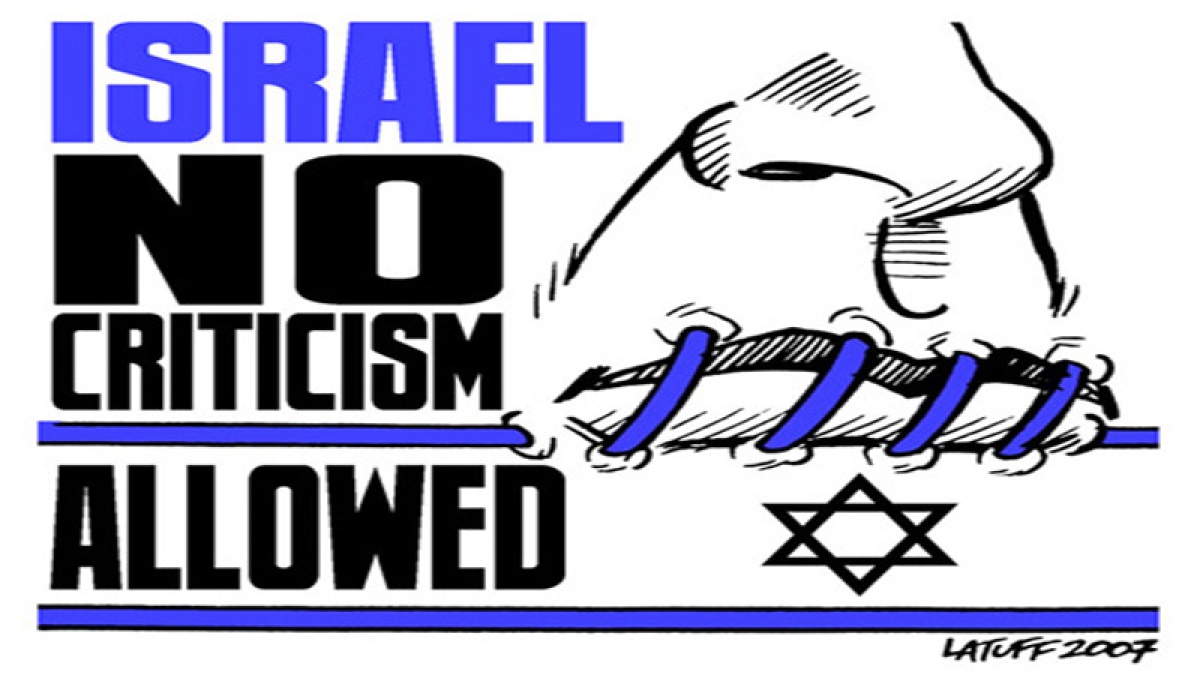Silencing Critics of Israel

Israel doesn't accept criticism. In fact, whether from friend or foe, even mild criticism is viewed as an existential threat prompting Israeli officials to unleash a torrent of abuse in an effort to silence and/or punish critics. And given new initiatives being rolled out in Israel and here is the US, by Congress and some state legislatures, this effort to silence critics is endangering free speech and the search for peace.
This worrisome tendency was on display in recent weeks as Israelis reacted with striking vehemence to remarks by United Nations Secretary General, Ban Ki Moon, and US Ambassador Daniel Shapiro.
In a speech to the Security Council, the Secretary General decried the "unacceptable levels of violence and polarized public discourse" that has taken hold in Israel and the occupied Palestinian territories. He condemned the Palestinian attacks on Israeli civilians and insisted that "the full force of law must be brought to bear on all of those committing crimes—with a system of justice applied equally for Israelis and Palestinians alike".
But Ban went further, observing that "security measures alone will not stop the violence. They cannot address the profound sense of alienation and despair driving some Palestinians...Palestinian frustration is growing under the weight of a half century of occupation...[and] as oppressed peoples have demonstrated throughout the ages, it is human nature to react to occupation, which often serves as a potent incubator of hate and extremism".
The Secretary General went on to express his concern with recent Israeli announcements to expand settlements in the occupied lands, urging them to: stop the demolitions of Palestinian homes and confiscation of Palestinian lands; address the humanitarian situation in Gaza; and to take concrete steps to improve the daily lives of the Palestinian people—noting that all of these behaviors made more difficult the achievement of an Israel-Palestinian peace.
Ban offered, as well, a series of steps the Palestinians needed to take to end their internal divisions, put their house in order, and end incitement against Israel.
In an address to an Israeli think tank, Ambassador Shapiro echoed some of Ban's concerns, noting "we are concerned and perplexed by Israel’s strategy on settlements. This government and previous Israeli governments have repeatedly expressed their support for a negotiated two-state solution — a solution that would involve both mutual recognition and separation … Yet separation will become more and more difficult if Israel plans to continue to expand the footprint of settlements."
Shapiro also criticized the way Israel governs in the occupied lands, saying "too much Israeli vigilantism in the West Bank goes on unchecked," he said. "There is a lack of thorough investigations … at times it seems Israel has two standards of adherence to rule of law in the West Bank — one for Israelis and one for Palestinians."
The Israeli reactions to both Ban and Shapiro were predictably harsh. Ban was accused of demonstrating a "double standard" with Israeli Prime Minister Benjamin Netanyahu saying that the United Nations had "lost its neutrality and moral force" and charging that Ban had given "tail wind to terror". Netanyahu also called Shapiro's observations "unacceptable". The Ambassador was accused demonstrating a "double standard" and was crudely dismissed by a former Netanyahu aide as a "little Jew boy" courting favor.
All of this heightened hyper-reaction to criticism plays out against a backdrop of dangerous moves by Israel and its supporters in the US to not only defame and politically punish critics and in some instances to go further by making criticism illegal. In Israel, steps have been taken to punish teachers and artists and the Knesset is considering a series of measures and the passage of a new law that target domestic critics in an effort to blacklist them as "traitors".
Meanwhile, here in the US, the Department of State has issued guidelines on anti-Semitism which, in addition, to including examples of displays of "hatred toward Jews...Jewish institutions and religious facilities" also goes down a dangerous path terming as anti-Semitic "applying double standards by requiring of [Israel] behavior not expected of any other democratic nation". And several state governments have passed laws prohibiting efforts that call for boycotting, sanctioning, of divesting from Israel because of Israel's treatment of Palestinians.
The net effect of all these measures will be to silence critics and to deny them not only their right to speak out, but to peacefully organize and act to affect change in Israel's policies in the occupied Palestinian lands.
There is a certain irony in all of this because in their hysterical use of charge of "double standard"—i.e. that Israel is being "singled out for criticism"—it is Israel's supporters who are themselves guilty of a "double standard", since, if they were to have their way, it is Israel which would be singled out as the only country that cannot be criticized.
In the end, Ban and Shapiro are right. Israel's behavior is doing grave damage to the Palestinian people and to any hope for peace. And their critics are wrong. It is not a double standard to criticize Israel and it is most certainly not anti-Semitic. In fact, the overreaction to criticism harms our political discourse, damages the effort to combat real anti-Semitism, and because it serves to enable destructive Israeli policies, it makes a just peace a near unattainable goal.
Topics: Anti-Semitism, Israel Lobby In The United States, Israeli-Palestinian Conflict, Occupation
Views: 1713
Related Suggestions

















